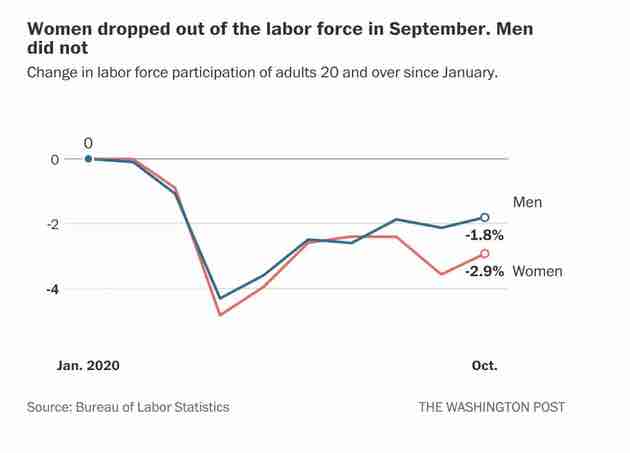In late October, Courtney Allen got the call she had been waiting for: A school district asked if she could come back as a substitute teacher. Allen desperately needed the money as she was getting only $125 a week in unemployment benefits. But she had to turn down the job.Follow the latest on Election 2020
Her kindergartner and first-grade sons are still at home all day, learning virtually. Allen is part of a wave of women having tomake difficult decisions that will affect family finances, as well as the broader U.S. economy, for years to come.
The pandemic recession has been dubbed a “she-session” because it has hurt women far worse than men. The share of women working or looking for work has fallen to the lowest level since 1988, wiping out decades of hard-fought gains in the workplace.
On Friday, the Labor Department’s jobs report showed that the economy has gained back just over half of the jobs lost in March and April, but the situation remains dire for women. There are 2.2 million fewer women working or looking for work now than in January, vs. 1.5 million fewer men, according to the Labor Department data.




